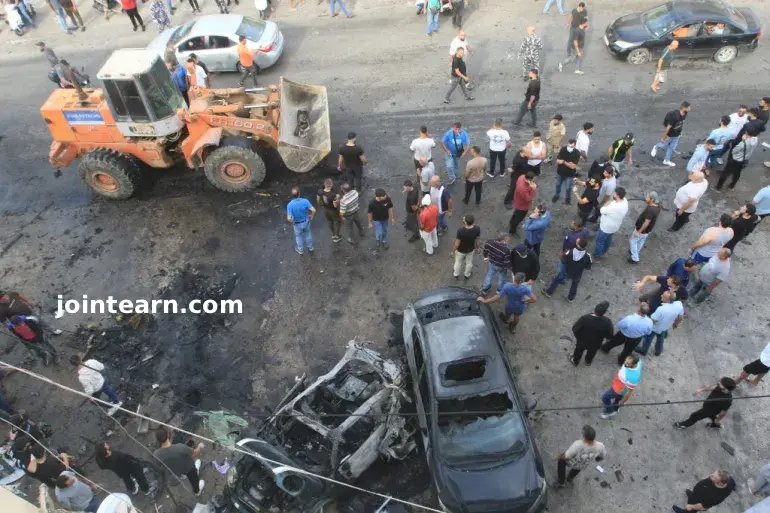
The Israeli military has escalated air raids on southern Lebanon, targeting the Tyre district in what officials say were Hezbollah military infrastructure sites. The strikes mark a sharp increase in attacks nearly a year after a ceasefire was signed in November 2024, underscoring the fragile stability along Israel’s northern border.
Details of the Israeli Strikes
In a statement released Thursday, the Israel Defense Forces (IDF) claimed it targeted Hezbollah operatives involved in reconstructing military installations, emphasizing its intent to “remove any threat to the territory of the state of Israel.” Lebanese state media confirmed the strikes near the towns of Toura and Aabbasiyyeh but reported no casualties.
The renewed attacks come amid mounting political pressure from the United States and Egypt for Lebanon to engage in direct negotiations with Israel. Hezbollah, however, has firmly rejected any dialogue, stating that negotiations “would not serve the national interest” and reaffirming its legitimate right to defend Lebanon against ongoing Israeli aggression.
“We reaffirm our legitimate right to defend ourselves against an enemy that imposes war on our country and does not cease its attacks,” Hezbollah said in a statement, referencing the continued Israeli air raids.
Political and Military Tensions
Although Lebanon and Israel remain technically at war, communication between the two sides is limited to a UN-backed monitoring mechanism involving the United States and France. Direct negotiations have not occurred, leaving the ceasefire in a precarious state.
Israeli Prime Minister Benjamin Netanyahu, who faces ICC charges for alleged war crimes in Gaza, warned that Israel could intensify operations in Lebanon, while Defense Minister Israel Katz pledged “maximum enforcement” to protect northern Israeli communities.
Lebanese President Joseph Aoun condemned the Israeli strikes and ordered the Lebanese army to prepare for any further incursions. Aoun, a former military commander, instructed the armed forces to confront Israeli operations following recent cross-border attacks, including the killing of a municipal worker during an overnight raid.
Hezbollah and Disarmament Controversy
Under the ceasefire terms, the Lebanese army is tasked with disarming Hezbollah in southern Lebanon by the end of 2025, with plans to expand nationwide. Hezbollah has resisted these measures, accusing Israel of exploiting the process to consolidate control over Lebanese territory. The group insists it will not disarm while Israeli forces continue strikes and occupy parts of southern Lebanon.
The ongoing conflict is further complicated by the assassination of Hezbollah leader Hassan Nasrallah in September 2024, which eliminated much of the group’s senior leadership. Despite this, Hezbollah remains a formidable force, capable of responding to Israeli military actions and mobilizing supporters along Lebanon’s southern border.
Regional Implications
The Israel-Hezbollah tension continues to destabilize southern Lebanon, threatening wider escalation in the region. The United Nations and international observers have repeatedly called for restraint, warning that renewed conflict could undermine peace efforts and further strain Lebanese political and security institutions.
The situation remains volatile, with daily Israeli strikes and Hezbollah countermeasures maintaining a tense standoff nearly a year after the ceasefire agreement. Analysts warn that without renewed diplomacy, the northern border could see further military escalations in the coming months.


Leave a Reply